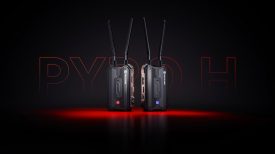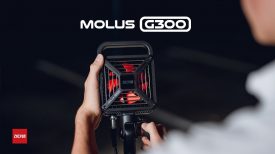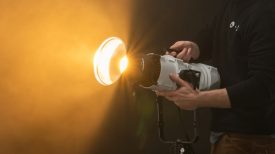
For most working professionals there’s a well-established workflow to protect the integrity of your media and data. Using quality media from reliable brands, employing tools like Imagine’s ShotPut Pro, Hedge For Mac or Red Giant’s Offload to ensure you’ve got a verified copy (or better yet, multiple copies) of the cards dumped to your computer and drives. You can use different coloured tape or cases during production to ensure nothing gets overwritten, and if the job is large enough you might even have a Data Wrangler or DIT whose sole responsibility is to ensure this is all taken care of. Regardless of the precautions taken to protect your media, unless your camera can shoot to two cards simultaneously you will always be at the mercy of the reliability of your cards. So what do you do when–despite your best efforts—the worst happens?

While I’m not a professional shooter myself I have been around the industry a long time, and have been involved in a vast number of corporate productions. It hasn’t always been smooth sailing and there have been instances where things have gone wrong, but thankfully they have been mostly recoverable using readily-available software such as SanDisk’s Rescue PRO. This type of recovery is usually effective when a particular file, or the file system itself has been corrupted – whether there are bad blocks on the media’s flash memory or someone just forgot to eject it before pulling the card out.
There are very few instances where data corruption and data loss can be as distressing as on a job, but sadly I discovered this the hard way when I had a card failure on my wedding day! An upset client or boss is one thing, but I’m pretty sure most of us would prefer that over a disappointed wife/husband any day of the week.

While I had a professional (a close friend) to cover the main events I felt confident shooting stills and a bit of video of the morning on my Canon 5D MkIII. I was using a reputable brand of media–in fact a premium line, promoted as ultra-reliable.
Unfortunately, the next day when I went to offload the files to my Mac, I inserted the CF card into my card reader (admittedly a cheap one) and to my horror the computer couldn’t see a valid partition. I didn’t panic until I placed it back in the camera to find that the 5D couldn’t find any files either. A few hours later, after attempting basic software recovery, I had to own up to my wife that the photos and videos were gone and I would need to look at other data recovery options.
In the following few weeks I unsuccessfully tried various options including a friend-of-a-friend at the Federal Police’s forensic data lab as a local data recovery lab here in Sydney. In desperation I even reached out to Delkin but they weren’t in a position to assist me. Another lab quoted me $1,000 to attempt a hardware recovery, whether it was successful or not!

So eventually I admitted defeat and stored the card in my bedside drawer for safe keeping. For the past two years it was a reminder of how, by not being careful when backing up data and following best practice, I’d failed my family and lost a lot of very important memories.

Out of the blue a couple of weeks ago Newsshooter was contacted by LC Tech, who are a large multinational data recovery lab based in Florida, but with offices in the UK (and soon to be in Japan, Netherlands, Hong Kong and Taiwan). As Dan and Matt knew my sob story they volunteered me to be a guinea pig for LC Tech’s services – to road test them for our audience in the case any of you might be in such a situation.
As I hadn’t had much luck with earlier attempts I was fairly sceptical, but after briefing one of their technicians on the history of my case I bundled the card up, shipped it (registered post!) to their lab in the UK, and held my breath.
My contact at LC Tech advised me as soon as the media arrived, and one of their engineers commenced work on it. They went through the basic software steps and quickly moved on to a complex recovery where the engineer physically removes the NAND chips from the card and migrates them onto what I can only assume is a jig of some sort.

This bypasses all the hardware on the card and allows them to directly access the memory, from which they can then do a software recovery of the file system (if required).

It only took four days after receiving my once-written-off CF card to have fully restored all the photos from my wedding day, and all but three of the videos!
I won’t go into detail about how happy my wife was (or how her tears of joy dried up when she realised that about half the photos were of our cats) but LC Tech definitely saved the day and I would use (and recommend) them again in a heartbeat if I had any issues with media or data corruption.
I was pleasantly surprised that the cost for a recovery job like mine is only £171 including the return postage of new media with the recovered files. This price varies based on the size of the card (mine was a 32GB), or whether your device is flash memory, SSD or a traditional hard drive. If they are unsuccessful there is no charge (except a bench fee on SSDs and HDDs), which is a great guarantee.
LC Tech also keep a copy of your data for 30 days, just to make sure you receive your recovered files and safely archive them.
So a happy ending to my story, but one that might not have been if I didn’t fully explore all available data recovery options. Have you had any similar incidences with losing data, or workflow tips to ensure data integrity? We’d love for you to share them in the comments below.





